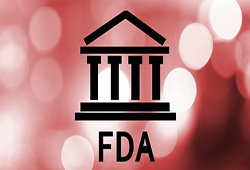 This week Patrizia Cavazzoni (Director, CDER), Peter Marks (Director, CBER), and Jeffrey Shuren (Director, CDRH) of the FDA testified before the committee on Health Education, Labor and Pensions of the U.S. Senate regarding reauthorization of the User Fee Acts, including the Biosimilar User Fee Act (“BsUFA”). The BsUFA is a law authorizing FDA to assess and collect fees from drug manufacturers that submit Biological License Applications for biosimilar products. Originally enacted in 2012 for a period for five years, the Act was reauthorized in 2017 (“BsUFA II”), and is now up for reauthorization again by Congress this year.
This week Patrizia Cavazzoni (Director, CDER), Peter Marks (Director, CBER), and Jeffrey Shuren (Director, CDRH) of the FDA testified before the committee on Health Education, Labor and Pensions of the U.S. Senate regarding reauthorization of the User Fee Acts, including the Biosimilar User Fee Act (“BsUFA”). The BsUFA is a law authorizing FDA to assess and collect fees from drug manufacturers that submit Biological License Applications for biosimilar products. Originally enacted in 2012 for a period for five years, the Act was reauthorized in 2017 (“BsUFA II”), and is now up for reauthorization again by Congress this year.
The testimony spanned many topics, but notably the FDA discussed the progress of biosimilar approvals, including its impact on cost. At the time the BsUFA was reauthorized in 2017, there were only five biosimilar products approved by the FDA. Since that time, the number has grown to 33 approved biosimilars, including two interchangeable products. According to FDA, based on data from IQVIA, the potential savings with biosimilars ranged from a 8.1% decrease in price (for insulin glargine) to a 42.2% decrease in price (for infliximab).
The FDA also discussed the model under BsUFA II for new molecular entity new drug application and original biologics license applications. According to the FDA directors, the main parameters of the Program include: “1) pre-submission meetings, 2) original application submissions, 3) Day 74 Letter, 4) review performance goals (10-month user fee clock starts at 60-day filing date), 5) mid-cycle communications, 6) late-cycle and advisory committee meetings, and 7) assessment of the Program” and has contributed to an increase of approvals to almost 70% during BsUFA II compared to 39% during BsUFA I. The FDA directors also testified that “[a]s of January 3, 2022, there were close to 100 active biosimilar development programs,” and that FDA has “received meeting requests to discuss the development of biosimilars to 47 different reference products.”
The FDA directors also discussed the FDA’s work on BsUFA III, which would apply to fiscal years 2023 through 2027 and its goal to “build on the experience gained through the first and second iterations of BsUFA by expanding on existing successful enhancements, refining elements from the existing program, and including new enhancements.” According to the FDA directors, the BsUFA III “proposes to retain the majority of existing review performance goals [that] FDA and industry agree are working well in the program.”
To read the full testimony from the FDA, click here.
